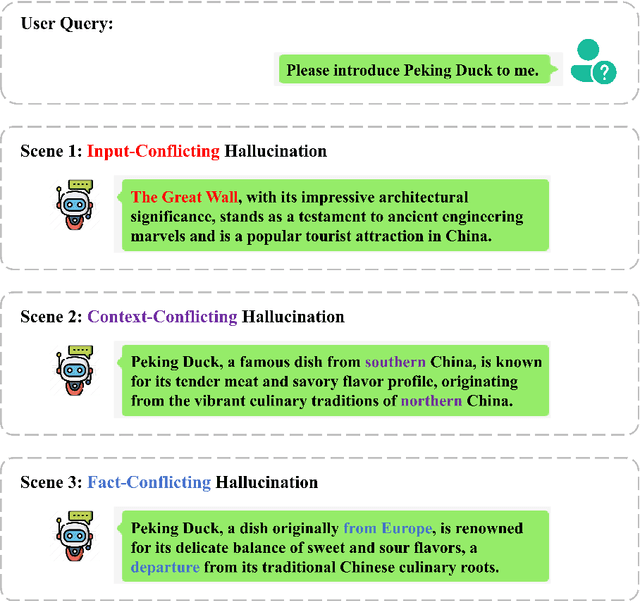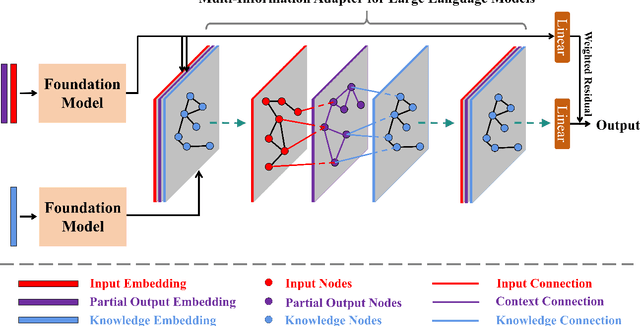Haiming Wu
Towards Automated Kernel Generation in the Era of LLMs
Jan 26, 2026Abstract:The performance of modern AI systems is fundamentally constrained by the quality of their underlying kernels, which translate high-level algorithmic semantics into low-level hardware operations. Achieving near-optimal kernels requires expert-level understanding of hardware architectures and programming models, making kernel engineering a critical but notoriously time-consuming and non-scalable process. Recent advances in large language models (LLMs) and LLM-based agents have opened new possibilities for automating kernel generation and optimization. LLMs are well-suited to compress expert-level kernel knowledge that is difficult to formalize, while agentic systems further enable scalable optimization by casting kernel development as an iterative, feedback-driven loop. Rapid progress has been made in this area. However, the field remains fragmented, lacking a systematic perspective for LLM-driven kernel generation. This survey addresses this gap by providing a structured overview of existing approaches, spanning LLM-based approaches and agentic optimization workflows, and systematically compiling the datasets and benchmarks that underpin learning and evaluation in this domain. Moreover, key open challenges and future research directions are further outlined, aiming to establish a comprehensive reference for the next generation of automated kernel optimization. To keep track of this field, we maintain an open-source GitHub repository at https://github.com/flagos-ai/awesome-LLM-driven-kernel-generation.
MALM: A Multi-Information Adapter for Large Language Models to Mitigate Hallucination
Jun 14, 2025



Abstract:Large language models (LLMs) are prone to three types of hallucination: Input-Conflicting, Context-Conflicting and Fact-Conflicting hallucinations. The purpose of this study is to mitigate the different types of hallucination by exploiting the interdependence between them. For this purpose, we propose a Multi-Information Adapter for Large Language Models (MALM). This framework employs a tailored multi-graph learning approach designed to elucidate the interconnections between original inputs, contextual information, and external factual knowledge, thereby alleviating the three categories of hallucination within a cohesive framework. Experiments were carried out on four benchmarking datasets: HaluEval, TruthfulQA, Natural Questions, and TriviaQA. We evaluated the proposed framework in two aspects: (1) adaptability to different base LLMs on HaluEval and TruthfulQA, to confirm if MALM is effective when applied on 7 typical LLMs. MALM showed significant improvements over LLaMA-2; (2) generalizability to retrieval-augmented generation (RAG) by combining MALM with three representative retrievers (BM25, Spider and DPR) separately. Furthermore, automated and human evaluations were conducted to substantiate the correctness of experimental results, where GPT-4 and 3 human volunteers judged which response was better between LLaMA-2 and MALM. The results showed that both GPT-4 and human preferred MALM in 79.4% and 65.6% of cases respectively. The results validate that incorporating the complex interactions between the three types of hallucination through a multilayered graph attention network into the LLM generation process is effective to mitigate the them. The adapter design of the proposed approach is also proven flexible and robust across different base LLMs.
Reasoning-Oriented and Analogy-Based Methods for Locating and Editing in Zero-Shot Event-Relational Reasoning
Jan 01, 2025Abstract:Zero-shot event-relational reasoning is an important task in natural language processing, and existing methods jointly learn a variety of event-relational prefixes and inference-form prefixes to achieve such tasks. However, training prefixes consumes large computational resources and lacks interpretability. Additionally, learning various relational and inferential knowledge inefficiently exploits the connections between tasks. Therefore, we first propose a method for Reasoning-Oriented Locating and Editing (ROLE), which locates and edits the key modules of the language model for reasoning about event relations, enhancing interpretability and also resource-efficiently optimizing the reasoning ability. Subsequently, we propose a method for Analogy-Based Locating and Editing (ABLE), which efficiently exploits the similarities and differences between tasks to optimize the zero-shot reasoning capability. Experimental results show that ROLE improves interpretability and reasoning performance with reduced computational cost. ABLE achieves SOTA results in zero-shot reasoning.
Bi-DCSpell: A Bi-directional Detector-Corrector Interactive Framework for Chinese Spelling Check
Jun 04, 2024



Abstract:Chinese Spelling Check (CSC) aims to detect and correct potentially misspelled characters in Chinese sentences. Naturally, it involves the detection and correction subtasks, which interact with each other dynamically. Such interactions are bi-directional, i.e., the detection result would help reduce the risk of over-correction and under-correction while the knowledge learnt from correction would help prevent false detection. Current CSC approaches are of two types: correction-only or single-directional detection-to-correction interactive frameworks. Nonetheless, they overlook the bi-directional interactions between detection and correction. This paper aims to fill the gap by proposing a Bi-directional Detector-Corrector framework for CSC (Bi-DCSpell). Notably, Bi-DCSpell contains separate detection and correction encoders, followed by a novel interactive learning module facilitating bi-directional feature interactions between detection and correction to improve each other's representation learning. Extensive experimental results demonstrate a robust correction performance of Bi-DCSpell on widely used benchmarking datasets while possessing a satisfactory detection ability.
Controllable Text Generation with Residual Memory Transformer
Sep 28, 2023



Abstract:Large-scale Causal Language Models (CLMs), e.g., GPT3 and ChatGPT, have brought great success in text generation. However, it is still an open challenge to control the generation process of CLM while balancing flexibility, control granularity, and generation efficiency. In this paper, we provide a new alternative for controllable text generation (CTG), by designing a non-intrusive, lightweight control plugin to accompany the generation of CLM at arbitrary time steps. The proposed control plugin, namely Residual Memory Transformer (RMT), has an encoder-decoder setup, which can accept any types of control conditions and cooperate with CLM through a residual learning paradigm, to achieve a more flexible, general, and efficient CTG. Extensive experiments are carried out on various control tasks, in the form of both automatic and human evaluations. The results show the superiority of RMT over a range of state-of-the-art approaches, proving the effectiveness and versatility of our approach.
 Add to Chrome
Add to Chrome Add to Firefox
Add to Firefox Add to Edge
Add to Edge